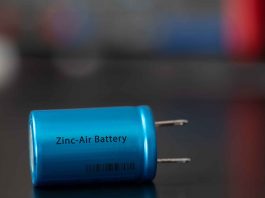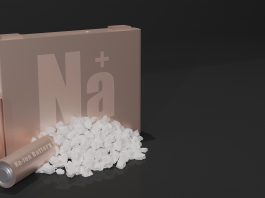A new system that speeds up the development of catalysts for Li-CO2 batteries has been created by the University of Surrey, Imperial College London, and Peking University.
The new technology will help address the slow and inefficient methods currently used to produce catalysts for Li-CO2 batteries.
These batteries are cheap and efficient and can also capture harmful emissions.
The study, ‘Developing highly reversible Li-CO2 batteries: from on-chip exploration to practical application,’ is published in Energy and Environmental Science.
The testing platform analyses the potential of metals for creating catalysts
In the study, researchers used the new platform to test and screen materials such as platinum, gold, silver, copper, iron, and nickel. They investigated whether these would be suitable candidates for developing high-performing Li-CO2 batteries.
Dr Kai Yang, corresponding author of this work, project co-leader, and lecturer from the Advanced Technology Institute at the University of Surrey, explained: “We have created a cutting-edge lab-on-a-chip electrochemical testing platform that can do multiple things at the same time.
“It helps evaluate electrocatalysts, optimise operation conditions, and study CO2 conversion in high-performance Li-CO2 batteries.
“This new method is more cost-effective, efficient, and controllable than traditional ways of making these materials.”
The importance of Li-CO2 batteries
Li-CO2 batteries are a promising new type of battery. They work by combining lithium and carbon dioxide to store energy efficiently and capture CO2. This combination provides an opportunity for the technology to make a dual contribution to the fight against climate change.
Dr Yunlong Zhao, the lead corresponding author of this study and a Senior Lecturer at Imperial College London, the National Physical Laboratory, and visiting academic from the University of Surrey, said: “It is crucial that we develop new negative emissions technologies.
“Our lab-on-a-chip platform will play a crucial role in advancing this goal. It will not only enhance our understanding of novel batteries, but it can also be applied to other systems like metal-air batteries, fuel cells, and photoelectrochemical cells.
“This new tool will enable quick screening of catalysts, studying reaction mechanisms, and practical applications, from nanoscience to cutting-edge carbon removal technologies.”









